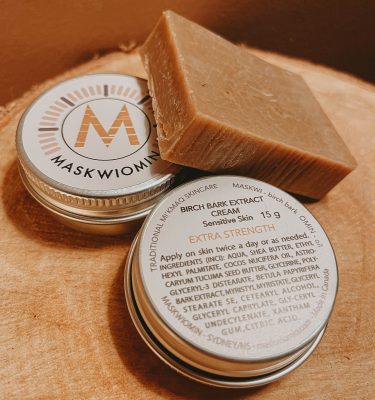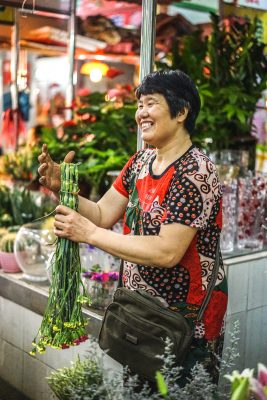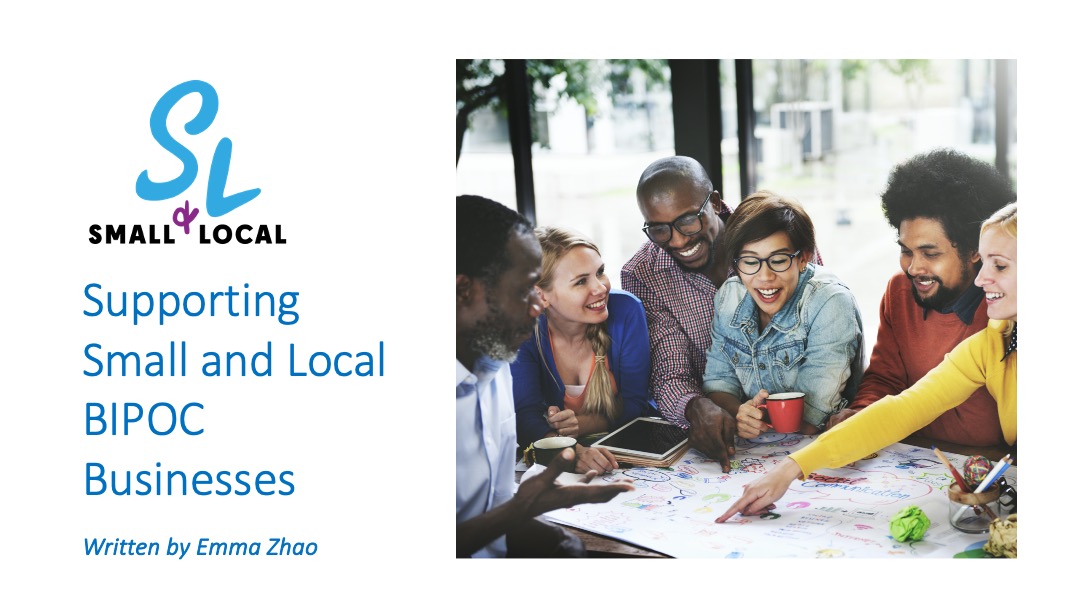Around two years ago, I came across an Instagram post about a group of white women creating a start-up business based on the traditional Chinese mahjong game. I remember feeling shock and abject disappointment that these women were, appropriating a culture that was experiencing increasing amounts of hate at the time. To me, they were taking away from my culture. And they were taking away from local BIPOC (Black, Indigenous, and People Of Color)-owned businesses that shared my culture.
This whole incident got me thinking—Canada usually prides itself on having a diverse population. While this is true, it’s still harder for immigrants and BIPOC founders to start up their own businesses. Facing barriers like language, finances, and systemic racism makes entrepreneurship even harder. On top of that, some white business owners take advantage of different cultures to make a profit, without actually respecting that culture. A commercialized form of cultural appropriation.
In my experience, BIPOC and immigrants in Canada tend to experience outright dismissal, or at the very least, are rendered effectively invisible. Whether it’s in academia, the film industry, etc., they are often othered.

This is why I find purposefully supporting local BIPOC owners extremely important. By seeking out BIPOC businesses to support their authentic creations and ideas, I feel as if, in some small, very minuscule way, I am ensuring that these businesses aren’t invisible. As if I’m letting them know, “I see you”.
And, it’s with this in mind that I write to you, either as an advocate or as a fellow member of the BIPOC community, with some ways that you can help support your local BIPOC-owned businesses.
Why do this? Simple: so that they can continue to grow and infuse our local communities with the diversity of perspectives and offerings from which we all benefit!
Choose to support local BIPOC-owned businesses
This might sound incredibly obvious, and it is, but it’s still worth talking about.
Let’s say you’ve decided to eat out one night, either by yourself or with coworkers or friends. While people tend to go to restaurants they are usually familiar with, it’s always nice to try something new. Trying foods from different cultures can be really eye-opening. You might discover a new favourite dish, or you might be introduced to a new food culture you’ve never thought you’d like.
If you decide to try something new, it’s important to actively seek out restaurants that make these foods authentically. Of course, it might be tempting to order from Edo Japan if you’re in the mood for sushi, or you might order from Popeye’s if you’re in the mood for soul food. Of course, fast food chains are typically the easiest and cheaper options.
However, if it’s something you can afford, try researching small local restaurants that sell the same foods. A lot of these places will also provide take-out or delivery options, if it’s more of an order-in type of day.
Or, if you love to cook, why not experiment with some small local grocers that specialize in international foods? My fellow writer, Sarah van Achte, wrote a great blog about this very thing with tips and Halifax local international food store suggestions, here.
Seek Out Indigenous Businesses
Maskwiomin is a traditional Mi’kmaq skincare shop owned by Tuma Young and Matthias Bierenstiel. Located in Unama’ki (Cape Breton), Nova Scotia, they use natural and restorative ingredients. Modelled after the Mi’kmaq tradition of collecting birch bark extract over campfires, which is used to treat all manner of skin conditions.

And, another great example of an Indigenous own business specializing in traditional craft supplies is Sunday Lace Creations. Owned by Mi’kmaw founder, Mariah Battiste, it provides all the beading supplies you could ever need! So if you feel like upping your crafting game, you should definitely check out her stunning collections of beads, supplies, and kits. Be prepared to spend some time, as her stock is impressively extensive!
You can also check out Wild Pier Beauty, another Indigenous business for vegan 100% natural and effective exfoliation products to clarify and stimulate healthier skin. Suitable for even the gentlest of skin types, their plant-based exfoliating gloves and konjac sponges get rave reviews! You can check out their socials to see all the love.
By actively choosing to seek out BIPOC-owned local businesses, you are supporting businesses that make a point of selling authentic and high-quality products that you wouldn’t, and probably shouldn’t, get from anywhere else. And by supporting Indigenous businesses, your purchase dollars are going towards sustaining and promoting Indigenous communities and cultures. Playing a small part in contributing to Truth and Reconciliation.
Research local BIPOC-owned businesses
Before buying certain products, you should always try and analyze when and where it’s the best time to purchase them. This is especially true for ordering or buying online. Sometimes, it’s really easy for people to forgo doing any background research on seemingly ‘good’ companies. However, this can mean that you might fall into the trap of supporting companies who have currently, or in the past, appropriated a culture that wasn’t theirs.
As I’ve mentioned before, companies like The Mahjong Line appropriate cultures because its white business owners are trying to insert a twist, or modernize an aspect of, another culture that they have no context or experience with. Unfortunately, there are many businesses out there that do the exact same thing.
A large part of doing this research comes from needing to understand cultural appropriation. Put simply, cultural appropriation is when people make a profit off of selling another group’s traditions fundamentally changing the meaning of the tradition in a more powerful society. Take a look at this article if you want to learn more about how companies contribute to cultural appropriation.
On a related note, Tribe Network is a great resource for researching and supporting BIPOC entrepreneurship and innovation. So do check them out if you are a BIPOC entrepreneur and/or an ally looking to invite, and include more BIPOC into your organization.
Get to know your local BIPOC business owners
Once you find small local BIPOC businesses to support, get to know them!
Sometimes it’s hard to make conversations with strangers. But, when you take a leap, there’s a whole new world waiting for you to discover it.

Being actively inquisitive about these businesses, and getting to know your local BIPOC business owners can help to know what’s in your community. You might learn some new things, and your perspective might even open up. Sure, a community is like your little bubble, but that doesn’t mean you can’t explore all the offerings within your bubble!
Following your favourites on social media can also keep you updated on their events for more ways to connect.
You can try attending local events to introduce you to local BIPOC-owned businesses that you wouldn’t otherwise have heard about. For example, the BIPOC Atlantic Job Fair occurs every year, and it’s a great opportunity to really get to know these business owners, what kind of products they sell, and where those ideas come from.
Support BIPOC Businesses through gift-giving, reviews, and referrals
If there’s a local BIPOC-owned business that you particularly enjoy, tell others about it. You can post an Instagram story of the food there and tell your friends where it is, and how much you love it. Better yet, you can invite your friends or family out to this restaurant the next time you go out.
You can also give gifts bought from local BIPOC-owned businesses. They might inspire the receiver to begin purchasing products from those stores too.
Leaving a review shouldn’t be forgotten—they are incredibly helpful for building a reputable brand. You can be personal in your review about your experience with the customer service or the products. That way, these local BIPOC-owned businesses can leave a bigger footprint on the internet for other people to find.
Know better, do better
A lot of my family members and family friends are business owners, and I have personally experienced their trials and tribulations—some of which were very unique. These are things I don’t think white people could ever truly understand. Things like your name or your accent, the way you look or the culture in which you conduct business, are all scrutinized in a way I’ve never quite observed with white businesses.
It’s important to be aware of these barriers, and to do your part in supporting these local BIPOC-owned businesses, while uplifting the voices that actually need to be heard. So, even though meaningful change can seem hard to reach, you can still be conscious of your part in this complex economic ecosystem. You can work toward empathy and understanding.
And by actively supporting local BIPOC businesses, you ARE helping to ensure that they remain visible, and celebrated! As they should be.
